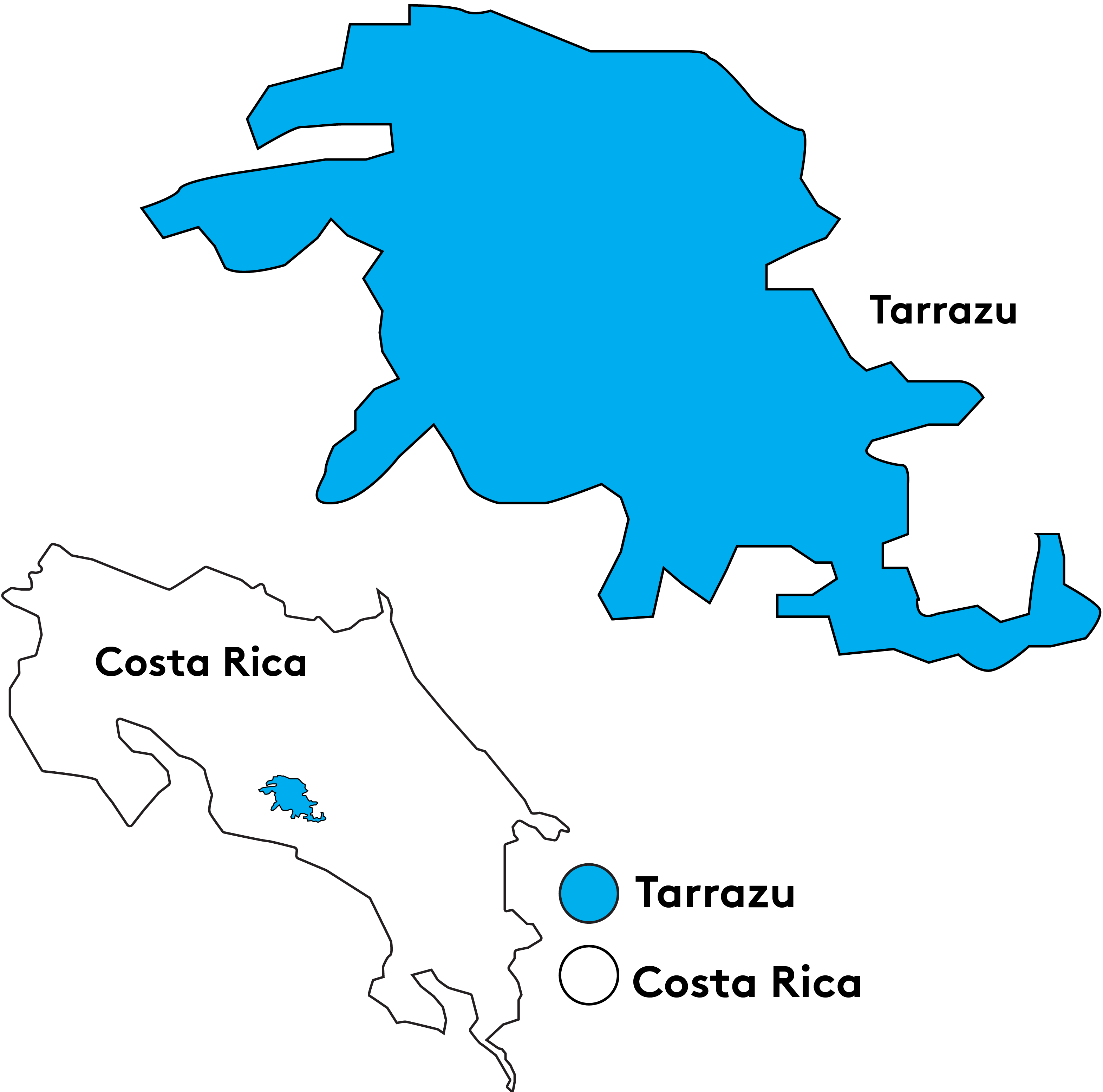Mr. Gerardo Arias, founder and owner of Café Directo Micromill, is a fourth generation coffee producer in the Tarrazú region of Costa Rica. He is a direct descendant of some of the pioneers of coffee in Tarrazú, including Don Ramon Blanco Arias who exported coffee from the region for the first time in 1903 under his brand “RB Tarrazú”, and Macario Arias who was the first person to establish a mill in San Marcos, Tarrazú. This history is the reason why Gerardo and his family have dedicated their lives to producing coffee.
In 1985, at the age of 15, Gerardo established his first coffee plantations in the town of Llano Bonito de León Cortés on a plot of land that he had inherited from his father. Five years later he purchased all 400 hectares of his father’s land, converting some of the meadows to coffee farms. Today, 70 of the 400 hectares are in production, while the remaining land is protected forest area.
In 2013, Gerardo fulfilled his dream of commercializing his coffee under his own brand when he established his mill under the name Café Directo. The Café Directo brand was created with the aim of reaching the consumer more directly with a high quality product and a good price. Today, he and his wife have also started a roastery under the brand name to sell their roasted coffee throughout Costa Rica. Café Directo is a whole family affair, with Gerardo’s wife Marlene in charge of the roastery while their daughter Jennifer helps with the administration of the wet mill and commercial operations.
Café Directo specializes in specialty microlots, including Washed, Semi-Washed, Honey, Natural, and Anaerobic coffees, all overseen by Gerardo who is a certified Q Grader. The coffee is 100% SHB (Strictly Hard Bean), with Gerardo’s plantations ranging from 1000–2000 meters above sea level. Café Directo farms grow a wide selection of varieties—including Red and Yellow Catuai, Yellow Pacamara, Tupi, Centroamericano, Catigua MG2, and many more—though Gerardo says that 60–70% of his production is Red Catuai, with the remaining 30–40% happening on renovated plots which are planted with new varieties.
The Arias family is proud to offer excellent quality coffee, produced and processed on the land where they grew up. The farm is named “Casa de Piedra”, or “Stone House”, as a nod to the history of the area. In the period of time during which the area was being colonized, colonizers saw potential for the land to be part of a trading route connecting San José to other parts of the country. With nowhere to stay overnight, they found a large rock with a cave beneath, which they used as a house. Stories say that there are 5 different stone houses in the area where the colonizers stayed for a period. Gerardo’s newest dream is to open his own coffee tour at his farm, including a walking trail where people can visit the farm, the forest, the historic stone houses, and the natural waterfall at the bottom of the farm.
This lot of Catuai coffee underwent Anaerobic Natural processing at Café Directo. Gerardo has been experimenting with anaerobic fermentation since 2015, finally settling on a process in 2019 that he has used ever since. He chose Catuai coffee for this process due to the quality of the results he produced with the variety. Cherries are harvested at 23 degrees Brix to ensure that the sugars are developed enough for the fermentation. Freshly harvested cherries are floated and washed with fresh water before being placed into sealed plastic tanks fitted with one-way valves. This valve lets oxygen escape during fermentation, creating the anaerobic environment. The cherries are fermented for 62 hours before being rinsed one last time. The fermented cherries are moved to raised beds on the drying patio where they are dried until reaching the ideal humidity.
